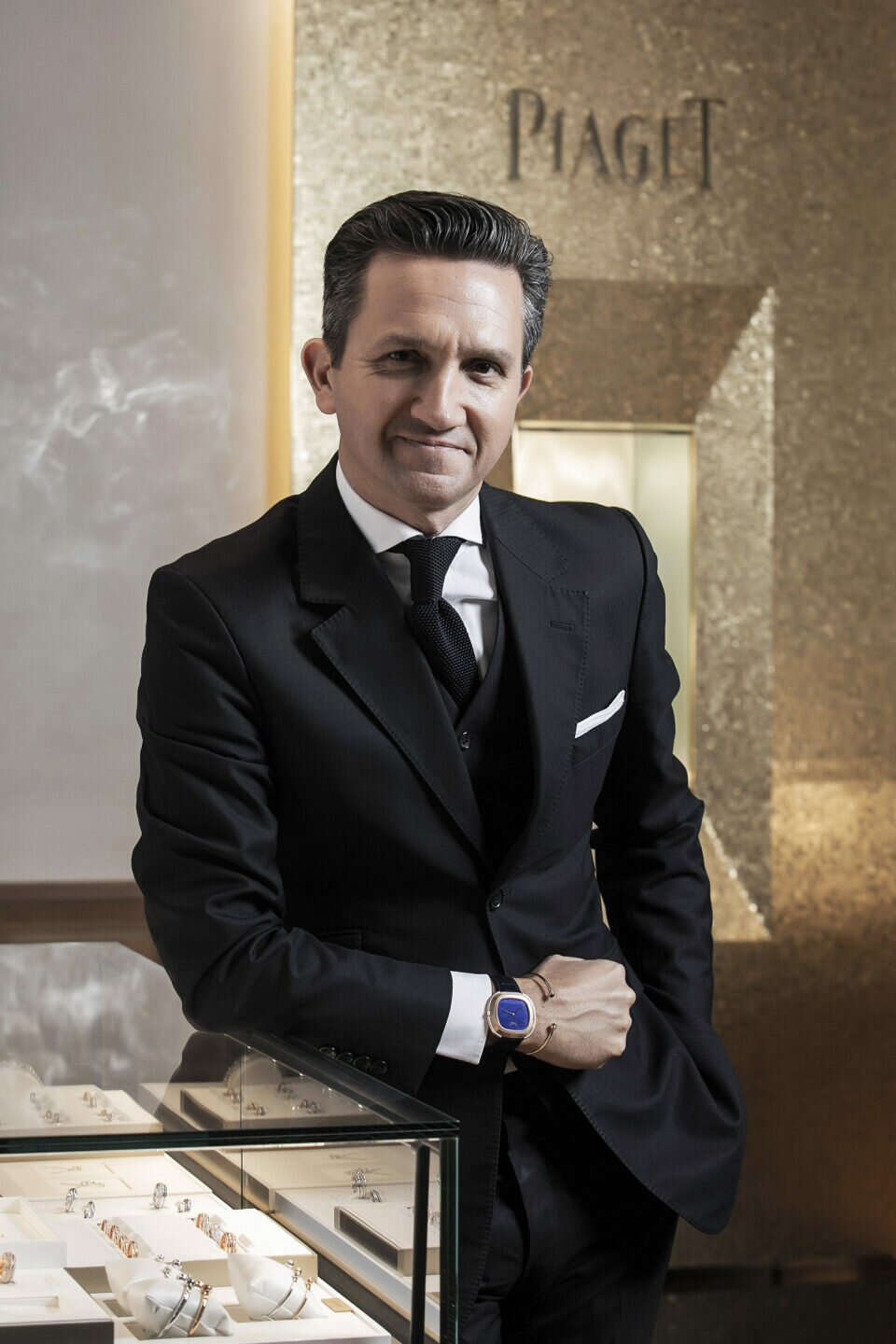Piaget is as formidable a contender in the haute horlogerie arena as it is in the pantheon of high jewellers. But as confident as it is about its solid product offerings, it also knows that stellar products alone do not guarantee market dominance. What any brand also needs, is the right strategy to grow sales and brand awareness within a targeted group of consumers.
This is where Christophe Bourrié, the maison’s global high jewellery and exceptional creations director, plays a crucial role. The luxury veteran joined the maison in 2019 after spending 20 years in the private banking sector and luxury alcohol business. He now heads Piaget’s client base development, as well as its high jewellery creations.
How is Piaget unique from other high jewellery maisons?
Piaget is one of the few remaining maisons with a fully integrated manufacture. This is where we design, develop and craft our jewels and watches. Indeed, we have a double savoir faire in watches and jewellery that differentiates us from other maisons. We’re also fastidious with our approach to gemmology. We’re not fixated on carat weight and choose gemstones that are unique, like those with really unusual colours for example. In the words of Piaget’s Head of Gemmology, “To find better quality stones, we would have to go on another planet!” Our unique savoir faire, distinctive designs as well as the unique quality of our stones are particularly seductive to this very demanding and sophisticated clientele.
What parallels can you draw between worlds of watches and jewellery, and luxury wines and liquors?
There are two main similarities:
1. Terroir: there is a geochemical importance to both jewellery and wines. In the same way Colombian emeralds are unique because they are the only ones on earth found in sedimentary host rock instead of Igneous rock, the same can be said of wines from labels like Petrus and Chateau Gazin, whose vineyards are planted on blue clay.
2. The importance of know-how and skill transmission. Both industries invest heavily in craftsmanship, know-how and knowledge transmission. These are crucial to the business because they ensure the brand’s DNA continues to live on. Know-how is usually transmitted internally, from artisan to artisan – for a master watchmaker, we’re looking at about 20 years of experience to work on complications; in the world of wines and liquors, 20 years is required to become a maître de chais.
You’ve spent years establishing and fostering relationships with the region’s UHNWIs – what are they looking for when it comes to high jewellery?
Customers today are more educated about high jewellery. All of our centre stones are certified by recognised labs and it is our duty to offer only the most beautiful and precious gemstones that nature has to offer. When it comes to design, we make contemporary jewellery that are stylish, audacious and creative. And last but not least, it’s important to create desirability. This is when the magic happens. Indeed, choosing a high jewellery creation is also about “love at first sight”. We often say that it is the creation that chooses you, rather than you choosing the creation.
How has Piaget better adapted to the needs and wants of the UHNWIs since you joined?
It’s all about making sure our client’s expectations and dreams are fulfilled. Our patrons are at the very core of our organisation, and they inspire us. My role is to perpetuate our brand heritage and continue to provide emotions and pleasure through unique pieces and rare gemstones. It is also to grow our Piaget society through exceptional experiences and rendezvous moments.
Does geography play a part in client purchasing behaviour ?
Geographical boundaries do not affect purchasing behaviour these days. Instead, this is linked to associated experience. For example, clients tend to prefer buying our products in Europe because we are a Swiss/European brand. Many of them also prefer making purchases during our high jewellery events because it becomes part of an unforgettable experience for them. The relationship and confidence they have with our brand ambassadors also plays a part. Since the pandemic, we’ve seen more clients shopping locally because of all the travel restrictions. This has also led to us developing local initiatives that allow our clients to continue living the Piaget dream in their country of residence.
How is Piaget engaging clients in these challenging times?
The last two years have been quite challenging and there was an urgent need to adapt to the situation. We took the opportunity to consolidate our fundamentals and to be closer than ever to our clients. As a pioneer in the digital era, this has helped us greatly. We’ve managed to create memorable online experiences like digital presentations, virtual boutique visits and live streaming of actual events, as well as one to one meetings with Piaget sales associates.


